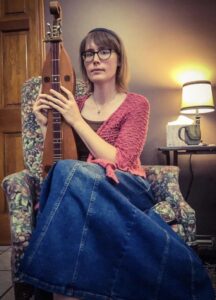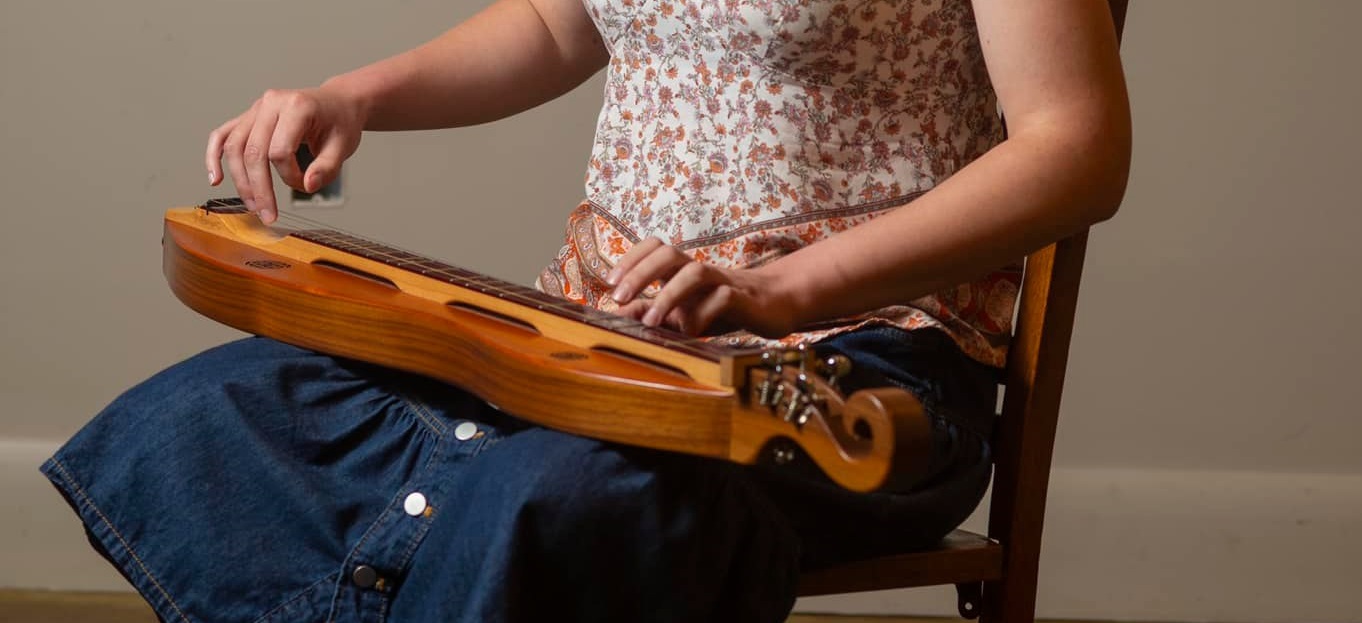Trigger Warning: This post contains content about suicide. If you or a loved one is struggling with suicidal thoughts, please contact the 988 Suicide & Crisis Hotline.
I didn’t come from a particularly musical family. My father sang in the church choir and I had a half-sister who played piano. Other than that, there weren’t any musicians in my family. In fact, there wasn’t a great deal of music in my community in general. My only real exposure to live music was the choir at our church. Attending church wasn’t something I enjoyed as a child, but those hymns were always a highlight of my Sunday mornings. It was simple accompaniment: usually just a piano and one or two acoustic guitars. The guitar fascinated me. I asked my parents for one many times, but we couldn’t afford one. I was also very young and my parents were concerned that I might not stick with it.

I was a quiet child and a bit of a loner. It was difficult to make friends, but music was the thing I always found refuge in. My mother was a big classic rock fan, and she probably influenced my musical tastes more than anyone. I began listening to music obsessively at an early age, but the music that I listened to put me a little out of step with the other kids at school. They all had CD players and were listening to what was current. I was carrying around a walkman, listening to my mom’s old Aerosmith cassettes.
My mom also bought me my first instrument when I was about four years old. It was a Hohner harmonica in the key of C. I never learned to play it well, but I carried it with me almost everywhere I went all the way through middle school. When I was 11, after years of asking, my parents bought me an acoustic guitar. There wasn’t anyone to teach me, so I had to learn a lot from books, as well as lots of trial and error. Once I started getting comfortable with the guitar, I began trying to write songs of my own. It was very therapeutic for a young person as lonely and unhappy as I was.
In my late teens and early adult years, I became increasingly withdrawn. I’d always felt different but was afraid to say why. It made me the subject of a lot of rumors and bullying. It reached a point where I had to make a decision. I could continue keeping my secret and being miserable or try to be happy. I took my chance and revealed to everyone that I was transgender. The reaction I received was hostile. People were threatening to hurt me, I had my tires flattened at work, and I was removed from the church I had belonged to since birth. Things reached such a low point that I even tried to take my own life by crashing my car. Thankfully, I failed, but I will never forget the ambulance ride. A paramedic asked me, “Can I give you some advice? You need to get out of this town”. I knew he was right.
I don’t tell this part of the story to be sensational or to make a political statement. I just feel that it’s necessary to provide this information for context and to give a framework for what follows.

Life became dangerous for me; I had to keep my head down and be careful for a while. I needed to leave, but I needed a place to run to. Music was the only thing I was passionate about, and I wanted to go back to school. A friend told me about the bluegrass program at ETSU, and I applied. I wasn’t particularly interested in bluegrass or old-time music, but I figured I would be fine with it if it meant I had somewhere to go. It was ironic: the treatment I had been receiving back home, combined with the negative stereotypes of the region I’d begun believing, had made me want to distance myself from all things Appalachian. Yet, here I was running towards one of the most stereotypically Appalachian things I knew of. When my acceptance letter arrived, I was overjoyed. I didn’t know what to expect, but at least life was going to be different.
During this time, I had become interested in dulcimers by happening across a video online. It was of a dulcimer player named Wendy Songe playing a tune called “King of the Faeries.” The instrument had an almost ethereal sound I found captivating. I bought a cheap dulcimer and practiced for hours on end. I began listening to artists who played the dulcimer, such as Jean Ritchie, Joni Mitchell, David Schnaufer, Stephen Seifert, and Sam Edelston. Edelston was particularly interesting to me because his playing of classic rock songs on dulcimer brought together the two musical worlds I found myself in.


